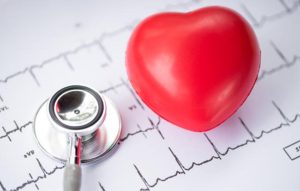10 Ways Fish Eggs Are Nutritionally Beneficial
Fish eggs, also known as roe, have been consumed for centuries and are enjoyed in many cultures worldwide. Beyond their unique taste and texture, these tiny nutrition morsels pack a punch for health benefits. Whether you’re a seafood lover or looking to incorporate more nutrient-rich foods into your diet, fish eggs are definitely worth considering. In this blog post, we’ll explore the top 10 nutritional benefits of fish eggs and why you should consider adding them to your next meal. So sit back, relax, and get ready to learn all about the power of these little eggs!
What is fish roe?
Roe, also known as fish eggs, refers to the eggs nearly all female marine animals produce, including a sea urchin and a sterlet. Salmon eggs are also known as salmon roe, for example. Female fish produce eggs often known as hard roe to distinguish them from milt (or soft roe), a type of fish food produced from male fish’s seminal fluids.
In Japan, roe is a major component of the cuisine. Different varieties of roe are popular from North America to Russia; however, roe is significantly featured in Japanese cuisine. At Japanese restaurants, flying fish roe (tobiko), capelin roe (masago), sturgeon roe (sevruga), or ikura (commonly known as red caviar since it’s a salmon caviar substitute) can be served as starters or used in sushi rolls. Beluga caviar from Russia is known as the best fish eggs to eat.
All kinds of roe are common, including bonito, paddlefish, bowfin, mullet, hackleback, lumpfish, whitefish, cod, sea catfish eggs, and sturgeon roe. Roe is similar to full-grown fish in that they may be a source of vitamin B-12 and omega-3 fatty acids. Are all fish eggs edible?
What is caviar?
Caviar is a luxurious delicacy enjoyed for centuries by people worldwide. While all caviar is roe, not all roe is caviar. It refers to a type of salted roe, or fish eggs, exclusively derived from the Acipenseridae family of wild sturgeon. It is important to note that only unfertilized sturgeon eggs can be considered caviar – herring roe and other similar types do not qualify.
Several sturgeon species produce caviar, including Beluga, White, Kaluga, Ossetra, Siberian, and Sevruga sturgeon. Unfortunately, due to overfishing, sturgeon populations have declined, leading to an increase in caviar prices and the classification of sturgeon as an endangered species.
Caviar is often eaten with blinis and Russian-style pancakes and can also be served as a side dish to complement meals or add a salty, buttery, and unique flavor. It is sometimes enjoyed with Champagne and a dollop of crème fraîche or sour cream to enhance its richness and delicacy.
It turns out that fish row has many benefits for the health of our body. As is known, the fish eggs are round and clustered with a very soft texture.
Nutritional Content of Fish Eggs
The nutritional content contained in fish eggs is as follows:
- One tablespoon contains 19 to 40 calories. Calories help increase the body’s energy when performing daily activities.
- Fat is important for the body to protect essential organs from impact. But excess fat is also not good for the body. Omega-3 fatty acids are plentiful.
- One ounce of fish eggs contains 8 grams of protein, which regenerates dead skin tissue cells and grows new tissue cells in the body.
- Vitamins serve to provide health for the whole body.
- Iron is useful to prevent anemia.
- Salmon roe nutrition is a valuable source of essential vitamins and minerals like phosphorus, selenium, and vitamins A, B12, and D.
- 1 oz contains 5.95 mg of vitamin E, which is 1/3 the daily recommended amount.
When you consume fish eggs, you benefit from their low carbohydrate content, high protein levels, and substantial omega-3 fatty acids.
The overall health benefits of fish roe supplements for health include:
1. Improve eyesight
The eyes are functional organs for seeing all the beauty around you. Because sight function is crucial, taking care of eye health is very important from an early age. Vitamin A, found in carrots, is good for eye health. But now research has also proved that the benefits of roe are also good for eye health if the consumption is per the needs.
Consuming DHA and EPA is crucial for the proper development of vision in infants and for maintaining the retina’s functionality in adults and children. A lack of omega-3 fatty acids may pose a risk of diabetic retinopathy, age-related macular degeneration, and dry eye syndrome. Consuming fish roe can prove beneficial to minimize these threats.
2. Helps cure anemia
Anemia is one of the problems in the body because of the reduced ability of hemoglobin to bind oxygen in red blood cells. Anemia often makes the patient feel dizzy, pale, and easily tired. The benefits of fish eggs are that they can help cure anemia in the body, so try to eat fish eggs.
 3. Maintain a constant blood pressure
3. Maintain a constant blood pressure
High blood pressure is known as hypertension. Hypertension makes the patient become dizzy and can cause complications if it is too high. Even the most fatal hypertension can lead to death. Low blood pressure is also not good because it makes the patient dizzy and sometimes faint. The problem of elevated blood pressure and lower blood pressure can also be increased in someone who has a family history of it. Diligently eating wild-caught fish eggs can be one good step because it can keep blood pressure regulated in the body. Taking fish oil supplements is also a good alternative to eating fish eggs for improving heart health as is just eating fish regularly.
Including potassium and omega-3 fatty acids in fish eggs has been linked to preventing high blood pressure, blood clotting, and inflammation. Research indicates that consuming a moderate amount of fish and fish eggs can potentially help regulate or avert hypertension. Additionally, the anti-inflammatory properties found in the omega-3 healthy fats present in fish may aid in reducing blood pressure levels by lowering oxylipin levels and constricting blood vessels.
4. Breast cancer
Breast cancer is a prevalent disease among women. Eicosapentaenoic acid (EPA) and docosahexaenoic acid (DHA) are types of long-chain omega-3 fatty acids that produce bioactive lipid mediators, which assist in resolving inflammation. These healthy fats are crucial components of phospholipid membranes and lipid rafts, structures that manage and segregate molecules and can impact cell signaling. It has been hypothesized that omega-3 fatty acids may play a role in preventing breast cancer.
The effectiveness of long-chain omega-6 fatty acids in affecting various physiological processes, including inflammation, depends on the levels of both the pro-inflammatory arachidonic acid (AA) and an individual’s genetic makeup that controls lipid metabolism.
Studies have shown that omega-3 fatty acids can reduce the risk of developing breast cancer.
5. Preventing Alzheimer’s Disease
A serving of fish eggs contains 0.983 grams of eicosapentaenoic acid (EPA) and 1.36 grams of docosahexaenoic acid (DHA), which are essential fats that the body cannot produce on its own. These fatty acids found in fish eggs can contribute to mental health, cognitive function, and brain health, with research indicating they may reduce the risk of heart disease and depression.
Omega-3s lower triglyceride levels and increase good cholesterol (HDL) levels, potentially leading to a stabilized cardiac rhythm and improved artery function. Metabolic actions from omega-3s can also decrease atherosclerosis and reduce inflammation indicators in the body.
6. Healthy bones and teeth
The essential nutrients vitamin D, magnesium, calcium, and phosphorus can be found in fish eggs, and they play an important role in maintaining strong bones and teeth. Healthy bones are vital for smooth functioning regardless of age, and fat-soluble vitamin D facilitates the absorption of phosphorus and calcium from whole food, which are necessary for bone health. Poor levels of vitamin D3 can impact the health of teeth, as they are part of the skeletal system, too.
Fish and their eggs contain small amounts of calcium, which is essential for healthy teeth and bones. Some research suggests that vitamins and calcium are beneficial to bone and tooth health. This is why fish eggs are an excellent source of calcium and vitamins for bone health.
7. Healthy heart
The presence of omega-3 fatty acids in fish roe can aid in lowering detrimental cholesterol levels, promoting overall cardiovascular health, and averting cardiac ailments. Further, the EPA and DHA in this substance can reduce lipids that are responsible for elevating the risk of heart disease and other cardiovascular disorders. Researchers have revealed that individuals afflicted with such illnesses are less prone to sudden death linked to such maladies, provided they consume fatty fish eggs and avoid saturated fat. Heart health fish eggs are beneficial due to their high omega-3 fatty acid content, which helps lower bad cholesterol and reduce inflammation.
8. Colon cancer
Colon cancer can also be prevented by eating fish eggs gradually to meet the body’s needs. The large intestine is the estuary for the disposal of food waste substances that are not needed by the body. There are also types of fish that can help cure certain chronic diseases, such as the snakehead fish.
9. Prostate cancer
This type of cancer is specific to men. It is recommended that men urinate while sitting when they have prostate cancer to eliminate the bladder. Prostate cancer can be prevented by eating fish eggs regularly to treat and also to prevent the occurrence of prostate cancer.
10. Boost immunity
It is crucial to uphold a strong immune system to prevent deadly microorganisms from causing sickness in the body. To achieve this, incorporating a diet rich in fish eggs is necessary. The nutrients in fish roe are highly beneficial in strengthening the immune system, thereby aiding in the prevention and resistance of several illnesses.
11. Mental Health and Brain
Fish eggs, often considered a delicacy in various cuisines, hold remarkable benefits for mental health and brain function. Rich in omega-3 fatty acids, particularly DHA (docosahexaenoic acid), they play a crucial role in brain health by maintaining the fluidity of cell membranes and supporting neurogenesis—the formation of new neurons. Moreover, these nutrients contribute to cognitive functions such as memory and learning and are linked to a lower risk of mental health issues like depression and anxiety. Additionally, fish eggs are a good source of vitamin B12, essential for producing neurotransmitters and maintaining the nervous system. Including fish eggs in the diet can be a valuable step toward enhancing mental well-being and cognitive performance, representing a natural and effective means to support brain health.
So, if you want to improve your overall health and well-being, consider adding fish eggs to your healthy diet. You can find them at most grocery stores or online, and they’re easy to add to smoothies, salads, or eat straight up. However, there are a few disadvantages of eating fish eggs when done to excess, so make sure to eat in moderation! If you are having any pain and would like to schedule a massage, call us today. We’d be happy to help!
 3. Maintain a constant blood pressure
3. Maintain a constant blood pressure 


